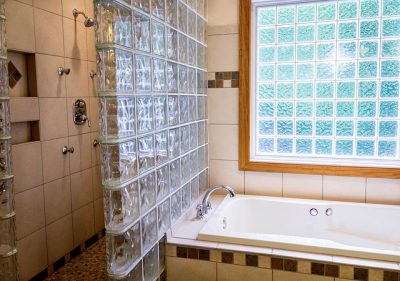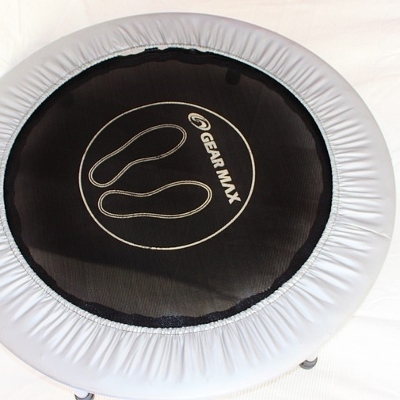
So, chances are, at some point during your younger days you took a tumble or sprained an ankle, and being the wise healers that they are, your mom or grandmother made you a nice warm bath. She perhaps poured what seemed to be magic crystals into it as the water was running. She then had you soak in the bathtub for a half an hour or so, and sure as can be, you felt better. Those magic crystals are actually called Epsom salt, and it can be found at any local pharmacy or department store these days. Even if you did not have this type of experience, I am willing to bet you have at least heard of Epsom salt and its potential health benefits, but is there any real evidence to support the claims that thousands of users have reported?
Epsom salt has been used for a very long time as a home remedy by folks suffering from muscle soreness, inflammation, and arthritis. Some of the other reported health benefits include helping with Chronic Fatigue Syndrome, bruises, muscular strains, ligament sprains, Fibromyalgia, sunburn, swollen feet, Psoriasis, constipation, tendonitis, and trigger points. The name Epsom salt is used because of where the salt was originally found. Epsom is located in England, where there are natural springs with an abundance of this salt. This particular salt differs from most other bath salts in that it contains no perfumes, oils, or herbs, which are added to the others in order to help the user relax and to benefit the superficial layer of the skin. When Epsom salt dissolves in water, it is broken down into magnesium and sulfate. It is these two molecules that are believed to be absorbed into the skin, thus providing the health benefits associated with this product.
Magnesium is the primary molecule that makes up Epsom salt, and it is certainly something that we need in our body to function normally. Some of the benefits of Magnesium include its ability to help us absorb vitamins, it helps us maintain a healthy nervous system, and it is also important in the regulation of muscle function. The question that many skeptics have is in regards to whether or not the skin can actually absorb these magnesium molecules. There is very little research out there regarding Epsom salt, but one study that was conducted by Dr. Rosemary Waring in 2006, proved that magnesium molecules are in fact small enough to pass through the skin and into the bloodstream. Although her research was not published in a research journal, her findings are encouraging. The way that she proved this was by testing both blood and urine samples of test subjects to see if the level of magnesium in the body increased after taking an Epsom salt bath. Samples taken after the Epsom salt bath confirmed that the subject’s levels of magnesium had in fact increased.
While the above study does demonstrate that magnesium molecules are small enough to pass through the skin barrier, it alone does not support the medicinal claims made by many. The fact remains that many health professionals including medical doctors, chiropractors, and physical therapist recommend that their patients take Epsom salt baths regularly in order to help with many of the conditions mentioned earlier, mostly those related to muscle and joint soreness or swelling. The University of Maryland Medical Center recommends the use of Epsom salt two to three times per week by mixing ½ cup of the salt in a gallon of warm water, and soaking your feet in the solution to improve circulation, reduce pain, and to decrease inflammation in the feet.
There is even an Epsom Salt Council, and their website (www.epsomsaltcouncil.org) supports many of the health claims, provides links to articles, and provides even more potential health boosting uses for this product. Their website is a good resource for more information, and there is an e-mail link where you can submit questions that you might have.
So here is the long and short of it all regarding whether Epsom salt really can help with the things that many users say that it can: There is some evidence to support these claims, at least in that your body can actually absorb the molecules that make up this salt compound. The fact that many healthcare practitioners recommend the use of Epsom salt to help with muscle soreness and arthritis pain, adds credibility as well. If nothing else, taking a nice hot bath not only soothes your tired and sore muscles, but it also helps to calm the soul. So the next time that you experience soreness after a hard workout, an Epsom salt bath could provide some relief. If you have questions regarding whether or not this is something that can help with a particular condition that you are experiencing, talk with your trusted healthcare professional.
Sources:
- Ingram, P. Does Epsom Salt Work? The Science of Epsom Salt Bathing for Recovery from Muscle Pain, Soreness, or Injury. Painscience.com 2016.
- Myers, Cheryl. What Does Epsom Salt Do for Soreness? LiveStrong.com 2015.
- Ratini, DO, M. Why Take an Epsom Salt Bath? WebMD.com 2015.
Dr. Chris, along with his wife Kelly, is the owner of Prana Chiropractic and Wellness Center in beautiful Fletcher, NC. Dr. Chris holds a Doctor of Chiropractic Degree, along with a Master of Arts Degree in Counseling, and a Bachelor of Science Degree in Human Services. Dr. Chris is a Chiropractic Physician, Certified Yoga Instructor, and Certified Fitness Trainer. Dr. Chris specializes in Applied Kinesiology, Activator Methods, Kinesiology Taping, and Instrument Assisted Soft Tissue Mobilization. He is the author of Simply Wellness: Learning to Live a Wellness Based Lifestyle One Day at a Time, and the new book The Wellness Revolution: A Chiropractic and Natural Approach to Optimal Health, which are both available on Amazon. You can sign up for free health tips, special offers, and monthly newsletter at www.pranachiro.com and you can also find Dr. Chris on Facebook at www.facebook.com/pranachiro





